On September 2, the fourth annual meeting of the international cooperation project “Data-Driven Optimization of Regional Energy Systems from an Information-Physical-Social Perspective” (English name: DATALESS), jointly funded by the National Natural Science Foundation of China (NSFC) and the Netherlands Organisation for Scientific Research (NWO), was successfully held at the Department of Electrical Engineering, Tsinghua University. Participants included Professor Peter Palensky, Associate Professors Pedro P. Vergara and Thaleia Konstantinou from Delft University of Technology (TU Delft), Professor Michael Pollitt from the University of Cambridge, Distinguished Researcher Pan Kaikai from Zhejiang University, Professor Kang Chongqing and Associate Researcher Guo Hongye from the Department of Electrical Engineering and Applied Electronics (EEA) at Tsinghua University, Assistant Researcher Geng Yang from the School of Architecture, as well as multiple Ph.D. students from TU Delft, Tsinghua University, and Zhejiang University.
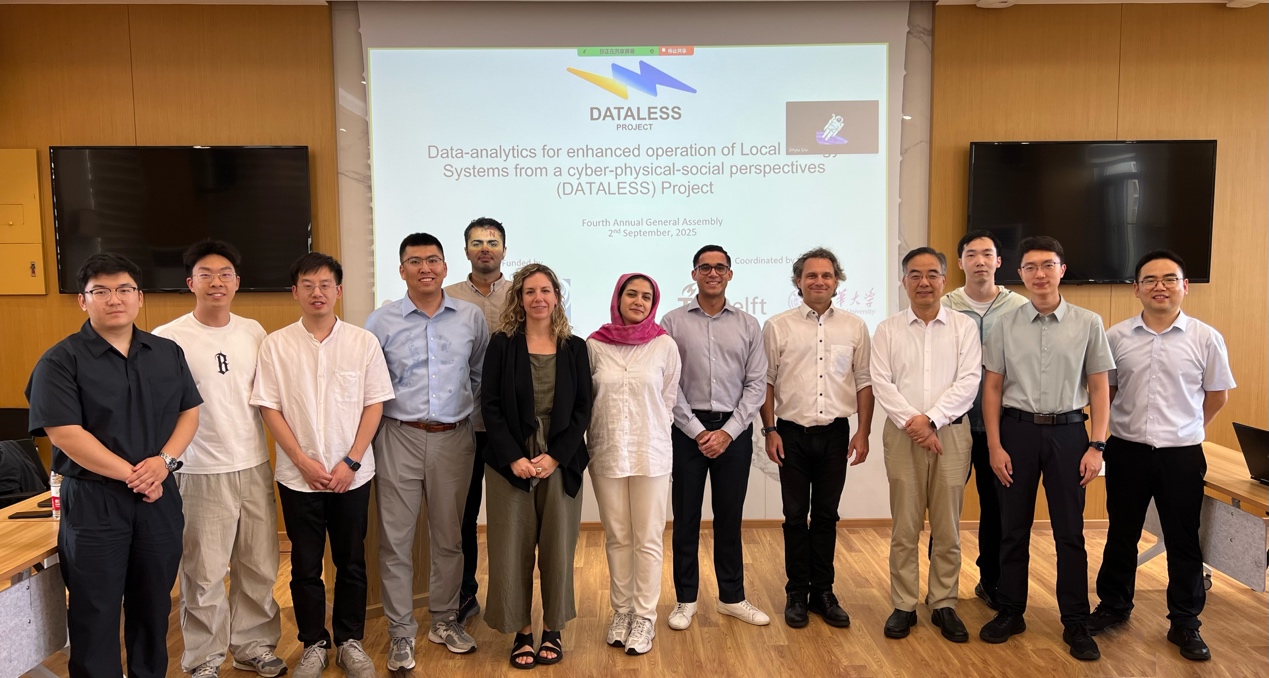
Figure 1. Group Photo of Participants
The annual meeting was divided into two sessions: a morning report session and an afternoon project progress exchange. In the morning session, Professor Kang Chongqing delivered a welcome speech, noting that both Tsinghua University and TU Delft are prestigious institutions renowned for their strength in science and engineering, sharing strong alignment in research interests. He expressed his pleasure in seeing the two universities engage in academic collaboration through this project and extended a warm welcome to the visiting researchers from TU Delft.
Associate Professor Pedro P. Vergara from TU Delft presented an overview of the DATALESS project framework and objectives. The project aims to develop new system-theoretical approaches to enhance the coordinated operation of regional energy systems and green buildings through three perspectives—information, physical, and social. At the physical level, it focuses on AI- and quantum algorithm-based distributed energy optimization, digital twin platforms for energy trading communities, and analytical tools to quantify regional energy flexibility. At the information level, it emphasizes developing algorithms to secure local energy systems against cyber-physical attacks and large-scale aggregation techniques under communication constraints. At the social level, it explores trading mechanisms in peer-to-peer markets and stakeholder behaviors in electricity markets, driving energy transition through regional energy systems.
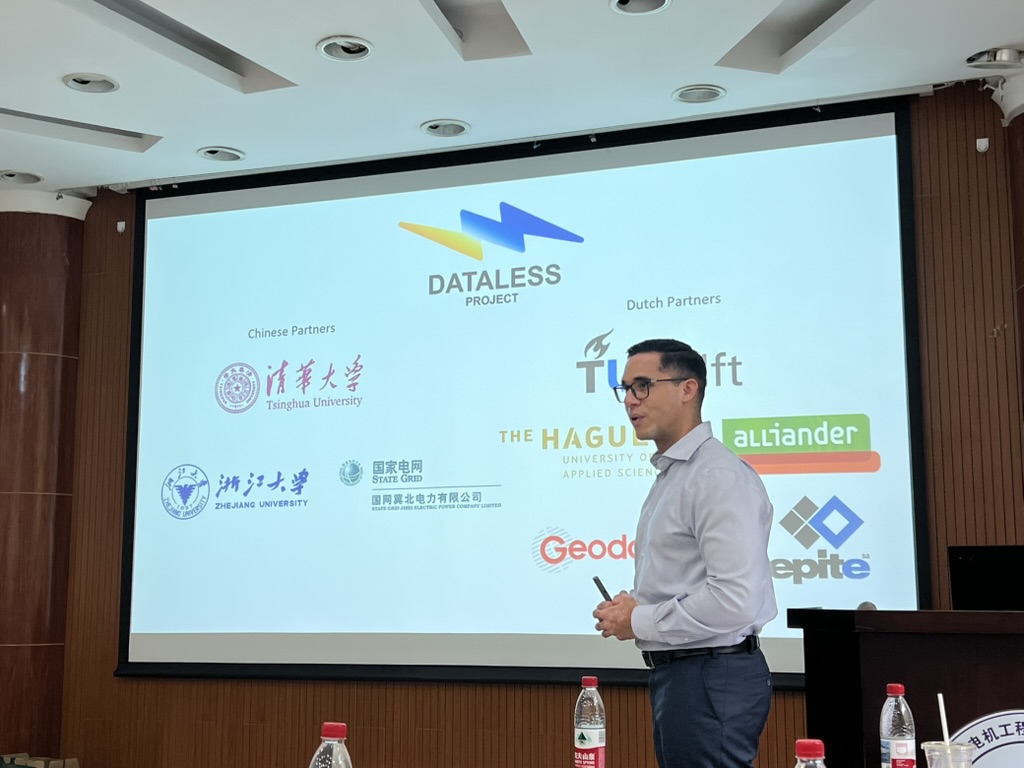
Figure 2. Professor Pedro P. Vergara Introducing the Overall Framework of the DATALESS Project
Professor Peter Palensky from TU Delft delivered an academic report titled “Electric Sustainable Energy at TU Delft.” He introduced TU Delft’s development history and mission, elaborating on its role in global energy transition and sustainable development. He highlighted the research directions and achievements of the Electrical Sustainable Energy (ESE) Department, covering the three major trends of decentralization, digitalization, and decarbonization in energy systems. His talk showcased recent advances in photovoltaic technologies, smart grids, energy storage and e-mobility, hybrid AC/DC networks, HVDC transmission, digital twins, and AI applications in power systems.
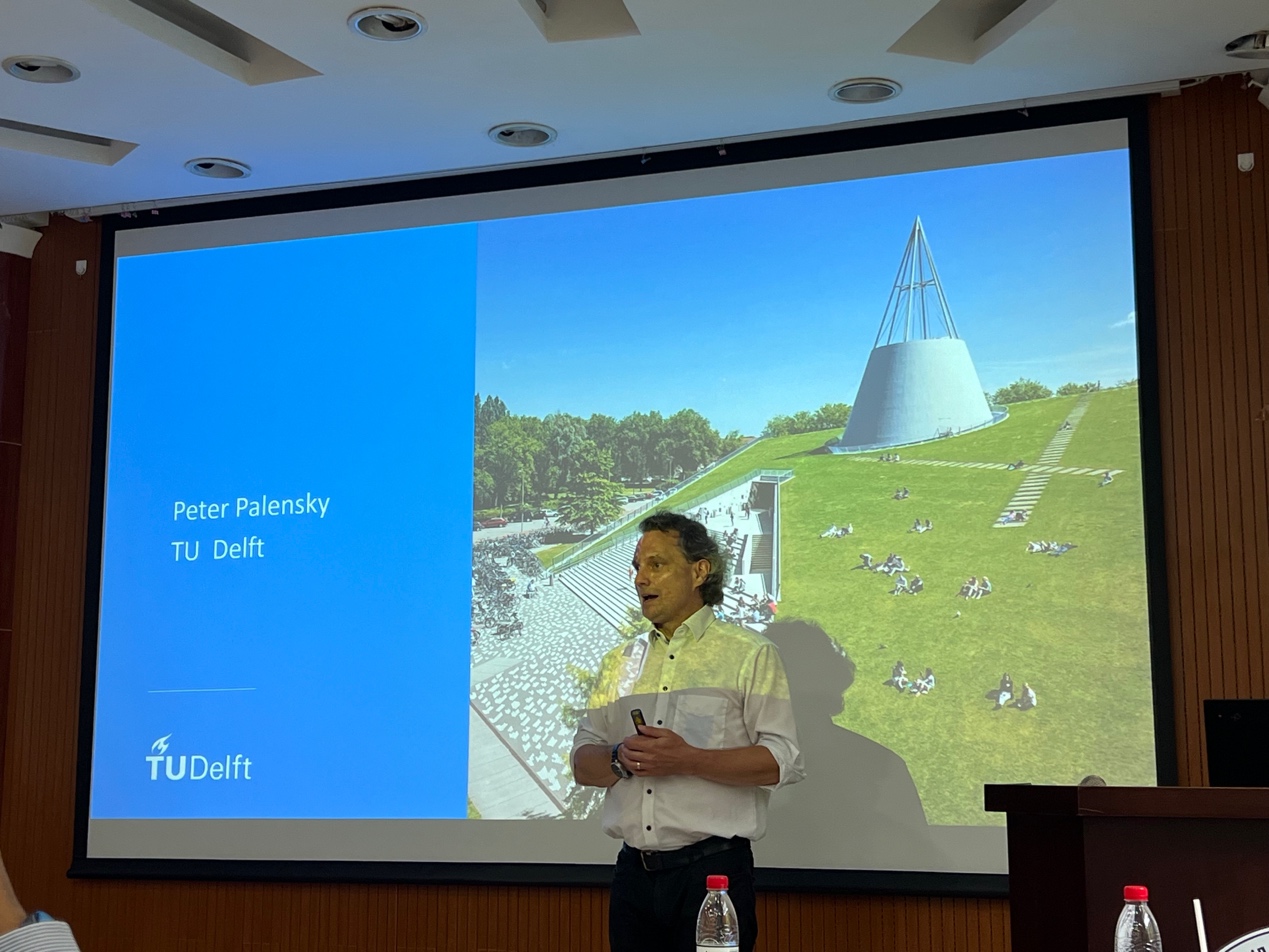
Figure 3. Professor Peter Palensky Presenting TU Delft and Its Research in Electrical Sustainable Energy
Associate Professor Pedro P. Vergara from TU Delft gave another report titled “Generative AI for Distribution Systems Planning.” He pointed out that the integration of renewable energy sources introduces congestion and overload risks in distribution networks, and that generative AI can alleviate data scarcity by producing synthetic data to support scientific planning. He compared multiple models, emphasizing the balance between fidelity, practicality, and privacy, and proposed risk quantification methods to provide more flexible and effective tools for distribution network planning.
In the afternoon, the project team held a progress exchange meeting in Room 3-503 of the West Main Building, where each subproject reported its latest progress and interim achievements. Zeynab Kaseb from TU Delft presented on “Coordinated Operation of Regional Energy Systems to Facilitate Renewable Energy Integration,” introducing a novel modeling approach for classical optimal power flow problems compatible with quantum computing and demonstrating “quantum-in-the-loop” optimization results via RTDS simulations. Guo Hongye from Tsinghua University reported on “Flexibility Mining of Large-Scale Distributed Demand-Side Resources,” showcasing feasible-region aggregation methods considering resource heterogeneity, joint transmission-distribution flexibility modeling, and applications of these results in virtual power plant construction projects across China. Geng Yang from the School of Architecture at Tsinghua University and Amin Jalilzadeh from the Faculty of Architecture at TU Delft jointly reported on “Data-Driven Green Building Modeling and Energy Management,” presenting a digital twin modeling method for data-driven decision-making in green buildings and demonstrating the Geodan-based system interface. Yu Ze from Zhejiang University reported on “Edge-Computing-Based Intelligent Control of Distributed Renewable Energy and IoT Devices,” sharing his team’s multi-agent coordination approach based on reinforcement learning, their closed-loop compensation control device for PV inverters under cyberattacks, and practical applications in Lishui, Zhejiang.
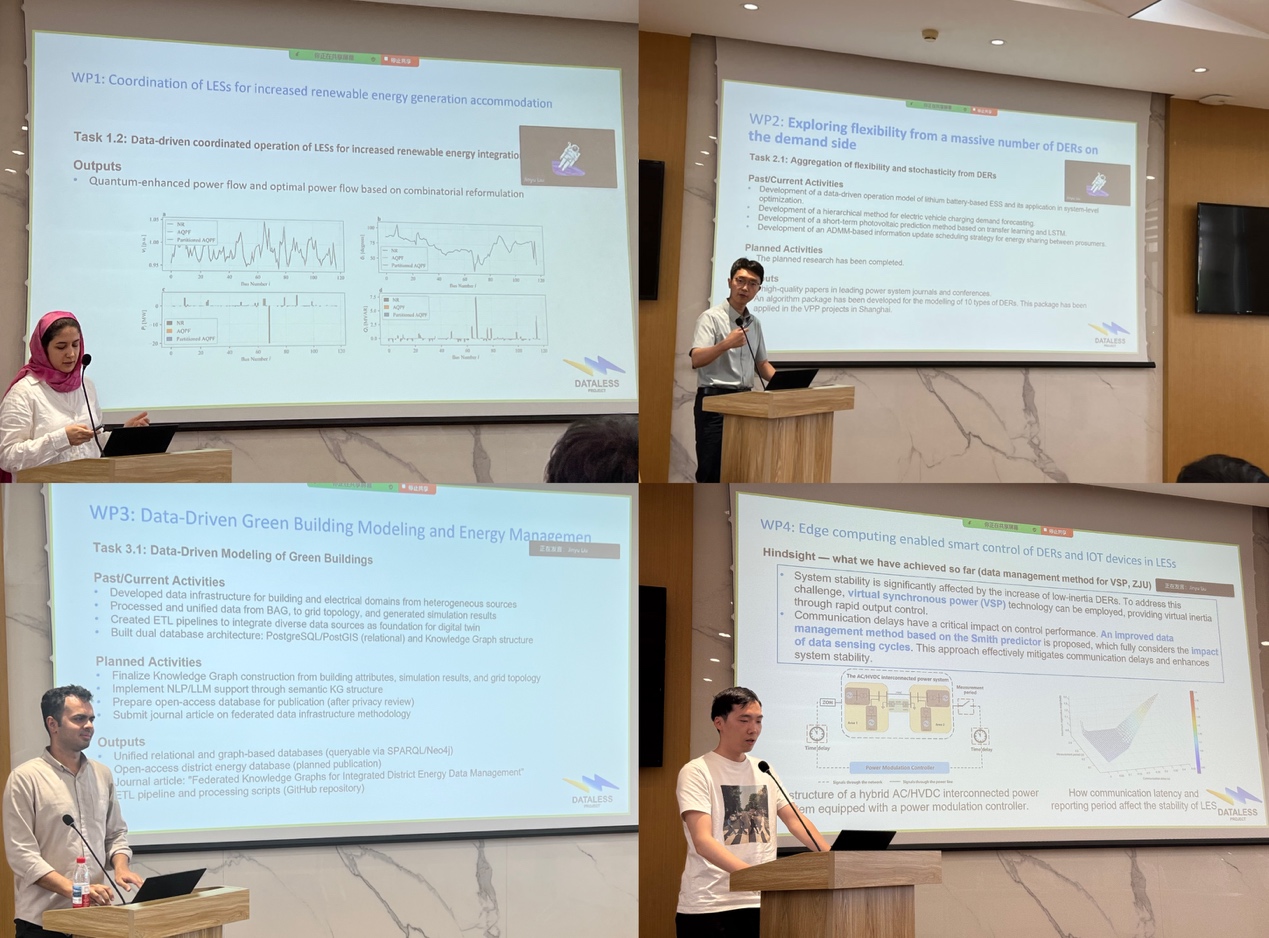
Figure 4. Project Team Presenting Progress of Each Subproject
Ph.D. students from various institutions also presented their specialized research topics. Zeynab Kaseb from TU Delft discussed advances in applying quantum computing to power system combinatorial optimization problems; Li Chuyi from Tsinghua University introduced accelerated feasible-region aggregation methods for distributed energy resources; Hou Shengren from TU Delft reported on reinforcement-learning-based secure scheduling for distribution networks; Amin Jalilzadeh from TU Delft presented progress in identifying flexible demand potential in buildings; and Zhu Jun from Tsinghua’s School of Architecture shared an energy planning strategy prioritizing local PV consumption in airport campuses. These young scholars’ presentations demonstrated the practical application of cutting-edge modeling and algorithmic methods, highlighting their active contributions and academic potential within the China–Netherlands collaboration.
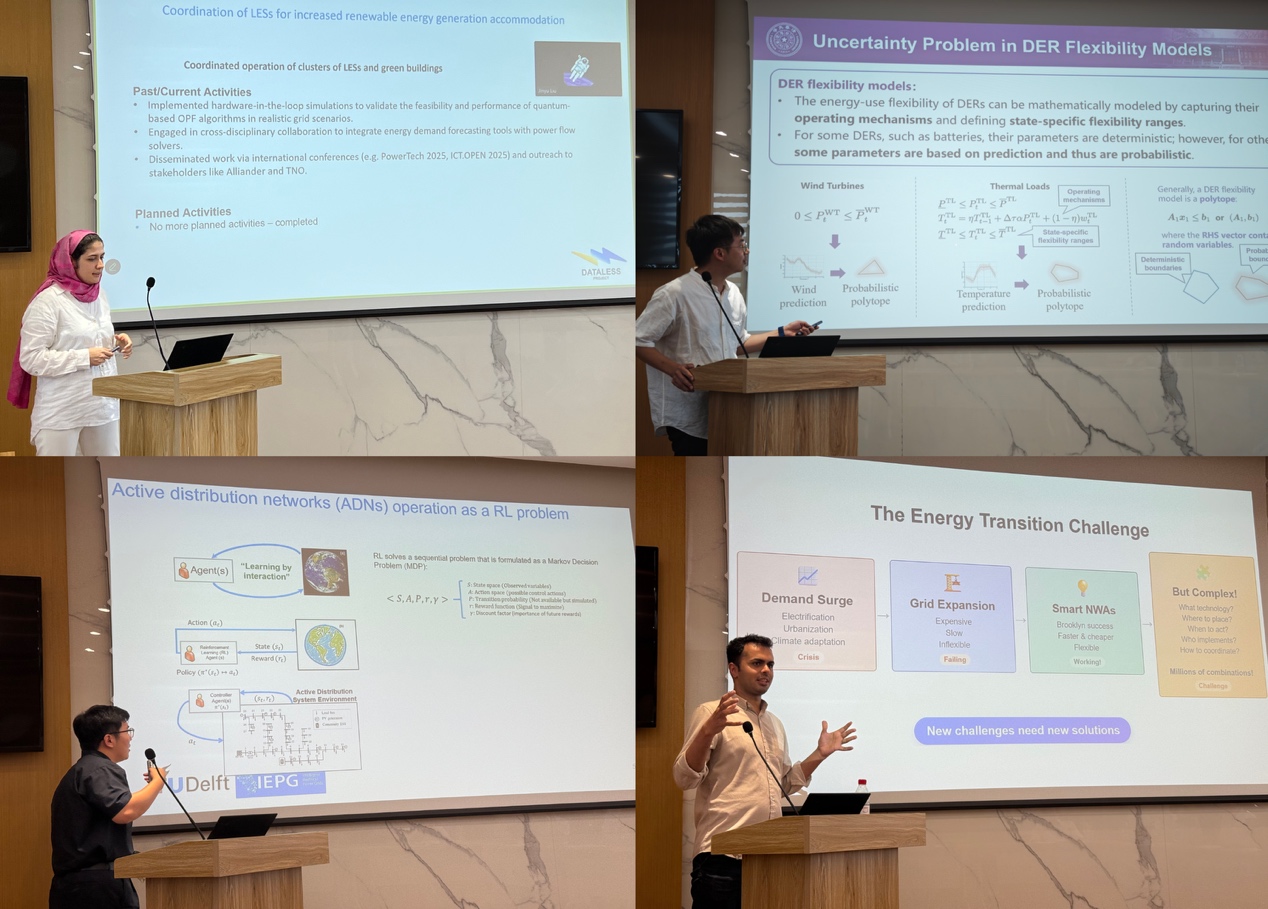
Figure 5. Ph.D. Students Reporting Their Research Progress
During the discussion session, Professor Michael Pollitt raised questions about the economic prospects of applying quantum computing to power system optimization and its potential feasibility in real markets. Professor Peter Palensky inquired about the regulation characteristics of data center loads in demand response. Other attendees also exchanged views and offered suggestions on distributed resource flexibility applications, green building energy efficiency models, and virtual power plant implementations.
Through this progress review and in-depth exchange, the participating teams demonstrated substantial research advancements in regional energy system optimization, reflecting deep interdisciplinary collaboration and laying a solid foundation for future pragmatic cooperation between China and the Netherlands in the fields of intelligent and sustainable energy systems.

















 News & Events
News & Events